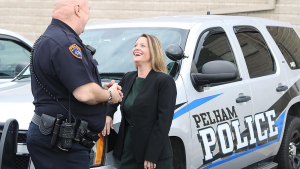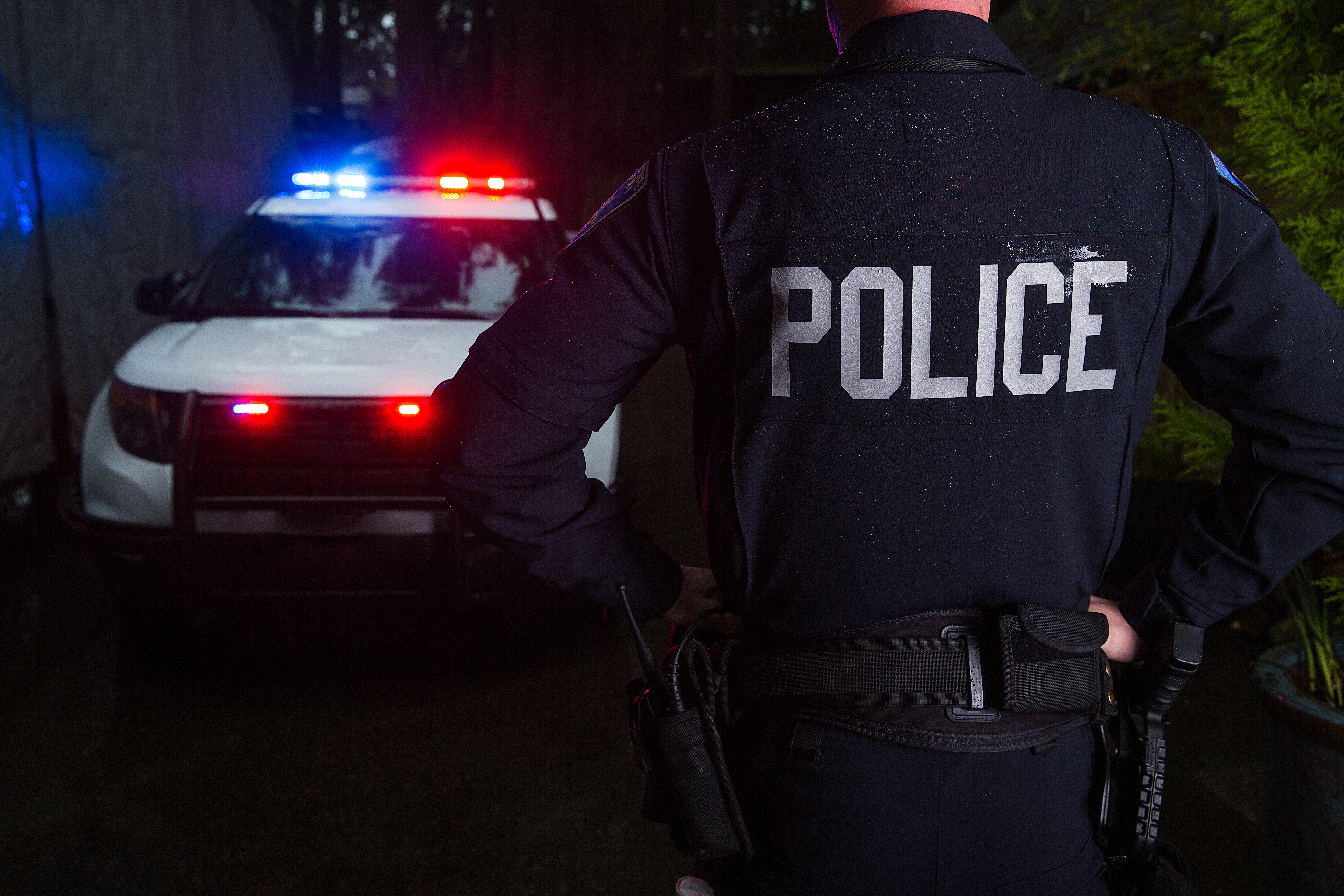|
Getting your Trinity Audio player ready...
|
Farris Terry wants her son to be safe. Terry’s son Noah is seven years old and on the autism spectrum and has been diagnosed for over a year. After finding out her son’s diagnosis Terry began researching to better understand.
After seeing a portrayal on television that showed a boy with autism being brutalized by police, Terry became worried.
Her husband is a police officer in Tuscaloosa who told her they receive very little training to recognize people with an “altered mental status” — and nothing for people with sensory issues.
“I started to look up how many times this happens. When you look at the statistics it’s actually kind of scary, how often a person on the spectrum has been arrested or even shot,” Terry said.
A study published in 2016 found that more than half of people killed by police have a disability.
Terry also cited a 2020 incident involving a 13-year-old boy with autism, Linden Cameron, who was shot by police after they were called to help him during an episode he was experiencing. Cameron was left paralyzed in his right arm.
“Just by looking at him you cannot tell that he’s on the autism spectrum so unless you’re trained to know what to look for you would have no clue,” Terry said about her son.
Terry said she was motivated by incidents like Cameron’s to do something.
Terry said she wanted to make a law to make sure her son was safe throughout the state, not just in Tuscaloosa. After Googling how to make a bill, she realized that she would need a lawmaker to sponsor the legislation, leading her to find Rep. Leigh Hulsey, R-Helena, who had already been working on such a bill in the Alabama House of Representatives. Hulsey had already worked during her time as a member of the Helena City Council alongside the Helena Police Department.
“In simple terms, an invisible disability is a physical, mental or neurological condition that is not visible from the outside, yet can limit or challenge a person’s movements, senses, or activities,” according to the Invisible Disabilities Association. “Unfortunately, the very fact that these symptoms are invisible can lead to misunderstandings, false perceptions, and judgments.”
HB356 requires each law enforcement officer to undergo training related to individuals with certain sensory needs or invisible disabilities every other year. The training will be in cooperation with Kulture City, a non-profit specializing in sensory and invisible disabilities.
Hulsey’ son, Cade, has autism and is now 21. Hulsey said it was this experience that gave her another lens to view the world and why she believes this legislation is important.

Leigh Hulsey with a police officer.
“This is birthed out of a desire to see anybody who had any type of situation like our sons would really have someone out there who is trained to see and recognize those things,” Hulsey said.
The bill is also titled the “Cade-Noah Act” after both Hulsey and Terry’s sons.
“I’m just a mom trying to advocate and make things better for my son and children like him. If this can prevent one person on the spectrum from being wrongfully arrested or even shot and killed then it’s totally worth it,” Terry said.
Many organizers, advocates, and experts have argued throughout the country that police reform or training can only go so far and an armed response will routinely result in violence.
Alternatives to policing are the best way to handle situations involving people with mental illness or disabilities, they say. Hulsey said that she does not think it is feasible to create alternatives to policing and that reforming the police to be better trained is the best option.
“You can put your money where your mouth is, and you can give them the training that they need, and you can provide the funding that’s needed to implement that training to make sure they’re better armed with accurate training and information,” Hulsey said.
In 2020, Denver created a Support Team Assisted Response (STAR) Program. This program dispatches unarmed health experts instead of police to certain emergency situations. Since its creation, the program has received universal acclaim, is currently expanding to address demand, and one study even found that it helped reduce crime.
With police training, there is often never a required formal assessment to determine the effectiveness of a particular training. According to Spectrum, an Autism research website, several states at the time had autism training but due to limited data being available, there was no reliable way to decide if the training was effective.
Hulsey said there weren’t any discussions to collect data relating to incidents and outcomes between police and individuals with “invisible disabilities.”
A separate study conducted in 2020 found that officers with autism training were just as likely as untrained officers to use force against a person with autism or admit them into a hospital involuntarily.
Zoe Gross, director of Advocacy at Autistic Self Advocacy Network, told APR that while it is important that police understand more about people with disabilities, it is her organization’s stance that police training isn’t enough.
“This can include ending policies like qualified immunity, which protects police from lawsuits when they harm people. It can also include funding alternatives to policing, such as unarmed crisis intervention teams,” Gross said. “These teams should provide services and resources to people in mental health crises, rather than responding with violence.”
Individuals with invisible disabilities may not be able to comply with police commands for various reasons, which often leads to more hostility and violence from the officer. The risk of violence also increases for Black people with disabilities.
The Senate passed the bill on May 24, sending it to Gov. Kay Ivey’s desk, where it currently waits to be signed into law.
The law would go into effect on Jan. 1, 2024.












































